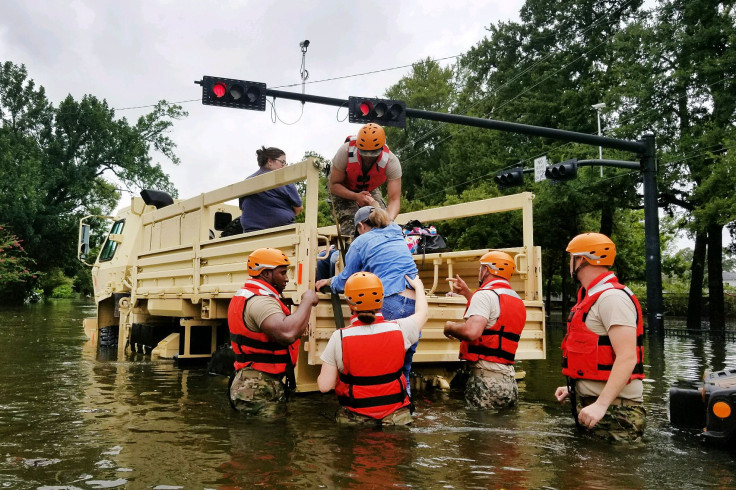Hurricane Harvey Relief: Feds Warn About Fake 'Support' Scams

United States federal agencies have issued warnings to citizens looking to help in the wake of Hurricane Harvey to be wary of potential scams, including phishing emails soliciting for money.
The U.S. Federal Trade Commission (FTC) issued an alert Monday noting a potential increase in charity scams devised to steal money from those hoping to donate to those in need. The agency warned to keep a close eye on social media posts being shared by friends or family, as it is easy for untrustworthy sources to spread.
A number of fake sites have already started to crop up online and have made the rounds.

Sites like houstonfloodrelief.net and harveyfloodrelief.org both have been registered within the last couple days, and both appear problematic. According to WhoIs records, houstonfloodrelief.net is registered to Hurricane Harvey located at Hurricane Lane.
Harveyfloodrelief.org includes a PayPal donation link that appears to direct funds to the personal account of the person who created the website. While it’s possible the person operating the site is well intentioned and wants to direct funds to victims, the lack of transparency makes it impossible to know where the money will end up.
BuzzFeed also spotted a fake phone number being spread through social media that is often shared as a phone number for the Federal Emergency Management Agency (FEMA) or other support services. Instead, the number directs the caller to an insurance company’s claim service.
The FTC also warned of potential scams run through text message. Many organizations have created numbers users can text to donate to relief efforts and have the charge added to their monthly phone bill, and scammers have taken to copying the tactics. The FTC advises people to confirm the number belongs to a legitimate organization before donating through text systems.
There are a number of resources available to check the legitimacy of a charity that are worth visiting before giving money. Sites like Charity Navigator and Charity Watch provide independent reviews of charities and provide details about where money donated to a given charity goes.
GuideStar offers a large collection of legal documents from charities that show a detailed accounting of how an organization spends its money, and Better Business Bureau is a valuable resource to find consumer complaints about an organization that may raise red flags.
In addition to the FTC’s warning, the U.S. Computer Emergency Readiness Team (US-CERT) issued a reminder that scammers will likely take advantage of Hurricane Harvey and surrounding efforts in order to deliver malware or launch phishing campaigns.
Attackers will often use references to current events or popular causes in the subject of an email in order to grab people’s attention. Often those messages include attachments that are laced with malware or link to sites designed to steal the login credentials of the visitor.
US-CERT advises users to carefully vet emails to confirm they are from a trusted source. Users should not download or open any attachments from an unfamiliar source and should not click on links in unsolicited emails.
© Copyright IBTimes 2024. All rights reserved.





















